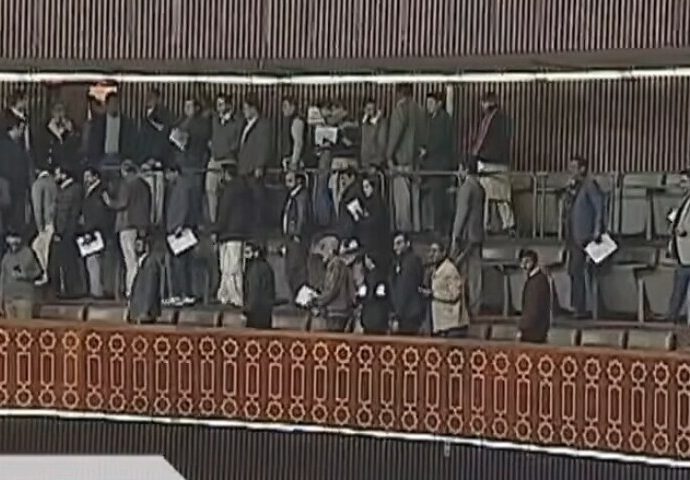Concerned about the absence of consultation and its consequences for press freedom, journalist organizations in Pakistan have vehemently protested recent modifications to the Prevention of Electronic Crimes Act (PECA).
The amendments were rejected and their immediate withdrawal demanded by a joint action committee that included the Pakistan Federal Union of Journalists (PFUJ), All Pakistan Newspapers Society (APNS), Council of Pakistan Newspaper Editors (CPNE), Association of Electronic Media Editors and News Directors (AMEND), and Pakistan Broadcasters Association (PBA).
The committee stressed that it was unacceptable that the PECA Act’s amendments were proposed without first engaging media stakeholders.
Separately, PFUJ President Afzal Butt and Secretary General Arshad Ansari called the amendments deceptive, saying they were a deliberate attempt to stifle the media, social media, and the larger journalistic community. They also said the amendments were unnecessary and a violation of constitutional rights.
The Karachi Press Club (KPC) also expressed serious concerns in their statement, denouncing the modifications as a danger to free speech.
The club’s secretary, Sohail Afzal Khan, and president, Fazil Jamili, emphasized that every Pakistani citizen is entitled to freedom of speech under Article 19 of the Constitution.
They asked that the law be repealed and criticized the administration for not consulting stakeholders before enacting the modifications.
The KPC suggested that by comprehensive legislation engaging all stakeholders, the government enable mainstream media to provide factual information in real time and counteract disinformation on social media.
The newly approved changes, which were presented to the National Assembly as part of a supplemental agenda, call for the creation of a Digital Rights Protection Authority (DRPA) with the authority to filter out illegal information, limit access to it, and punish those who distribute it.
The modifications broaden the definition of “social media platforms” to encompass the hardware and software that are used to access them, as well as websites, applications, and channels of communication.
The proposals also propose eliminating the FIA Cybercrime Wing and substituting it with harsher sanctions. For example, posting banned content from provincial or legislative assemblies on social media might lead to a fine of Rs2 million and up to three years in jail.
In a show of resistance, journalists left the press gallery during the bill’s introduction in the National Assembly.
The KPC and other groups have demanded that the “black law” be repealed immediately and stated that they will consult to determine their next line of action.
Critics have strongly criticized the revisions, calling them an assault on freedom of speech and the press. They have called on the government to consult with civil society groups and media organizations before enacting any laws that impact press and digital rights.
